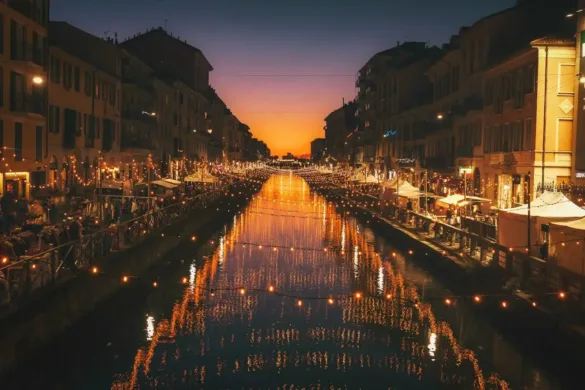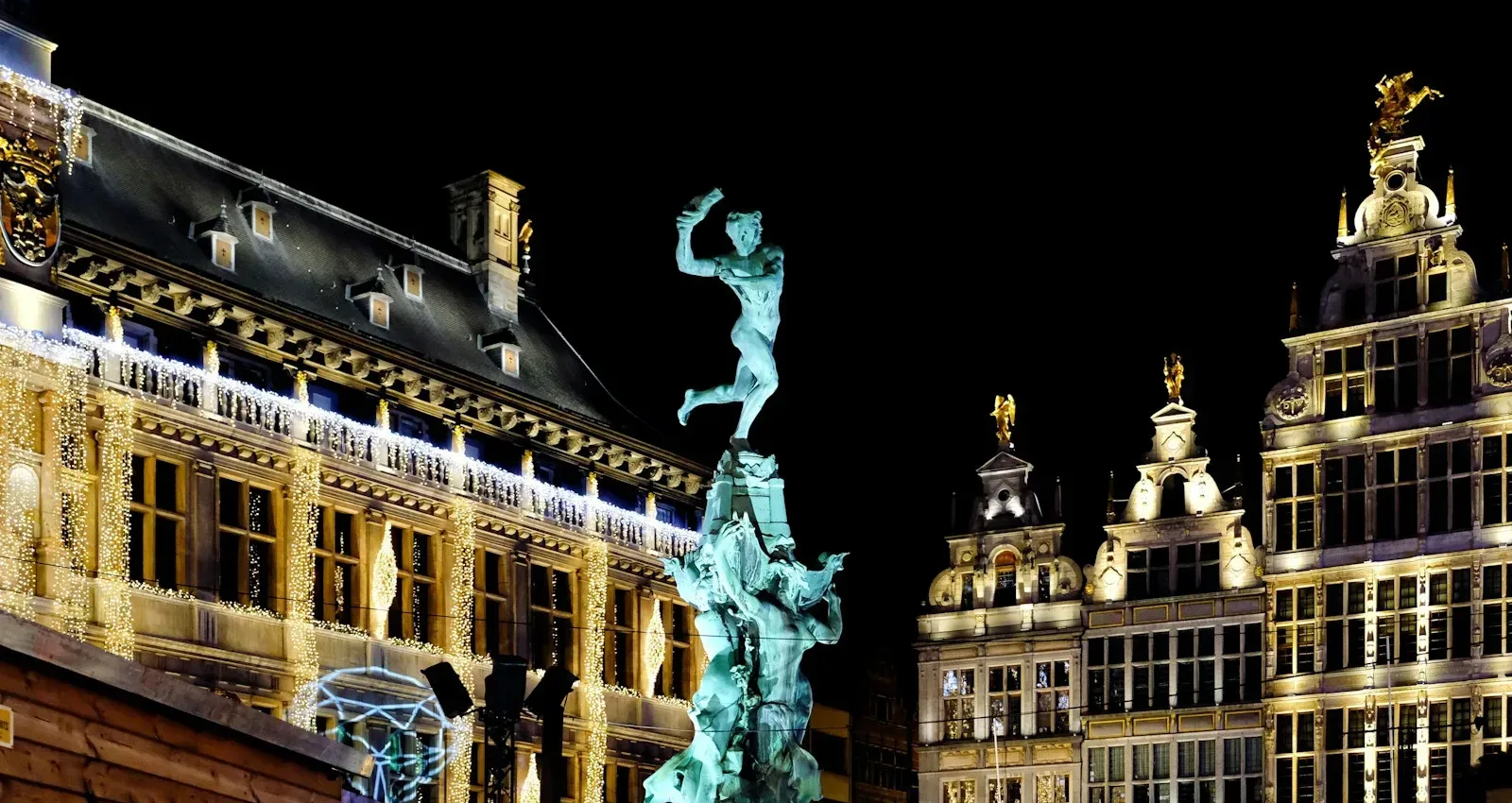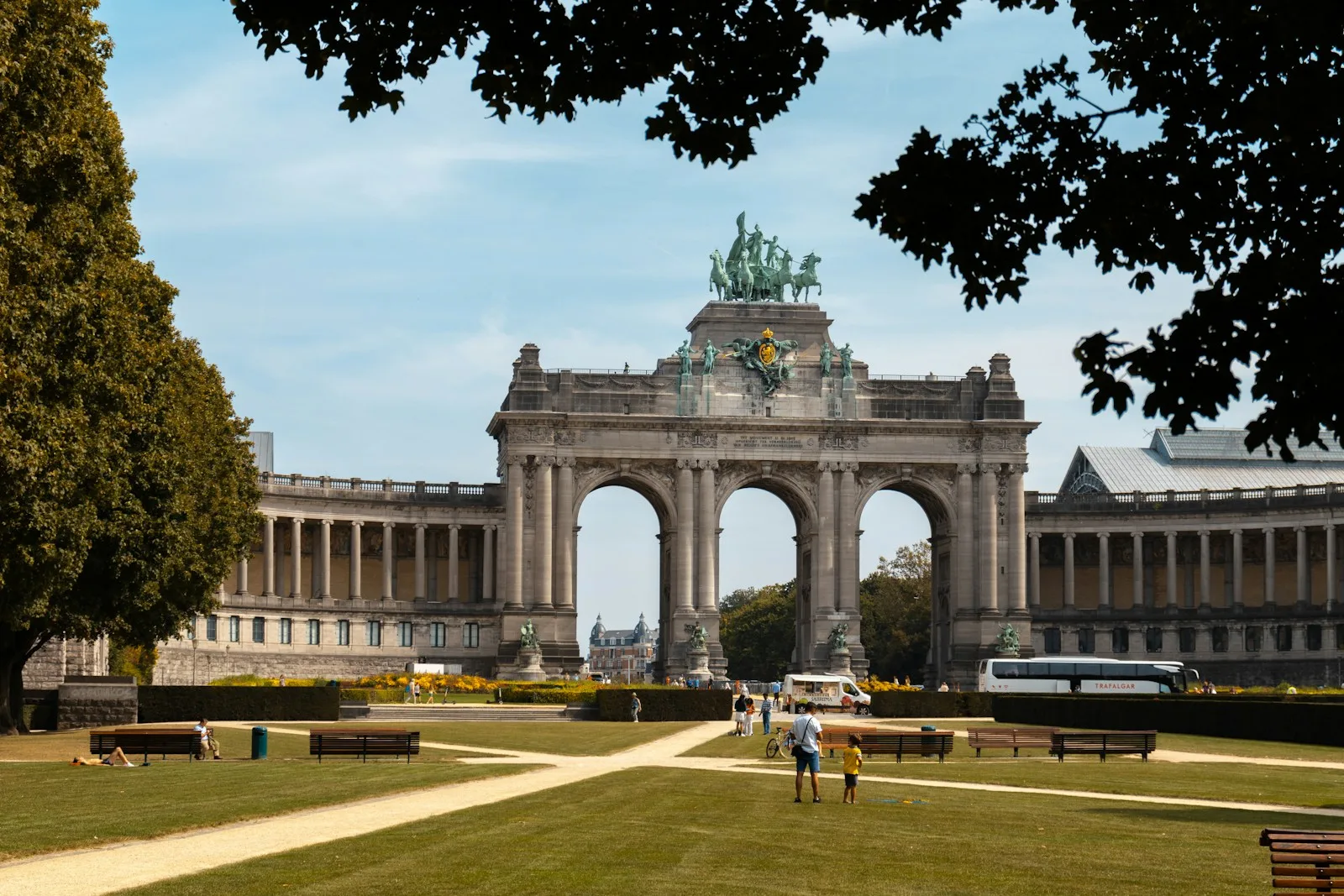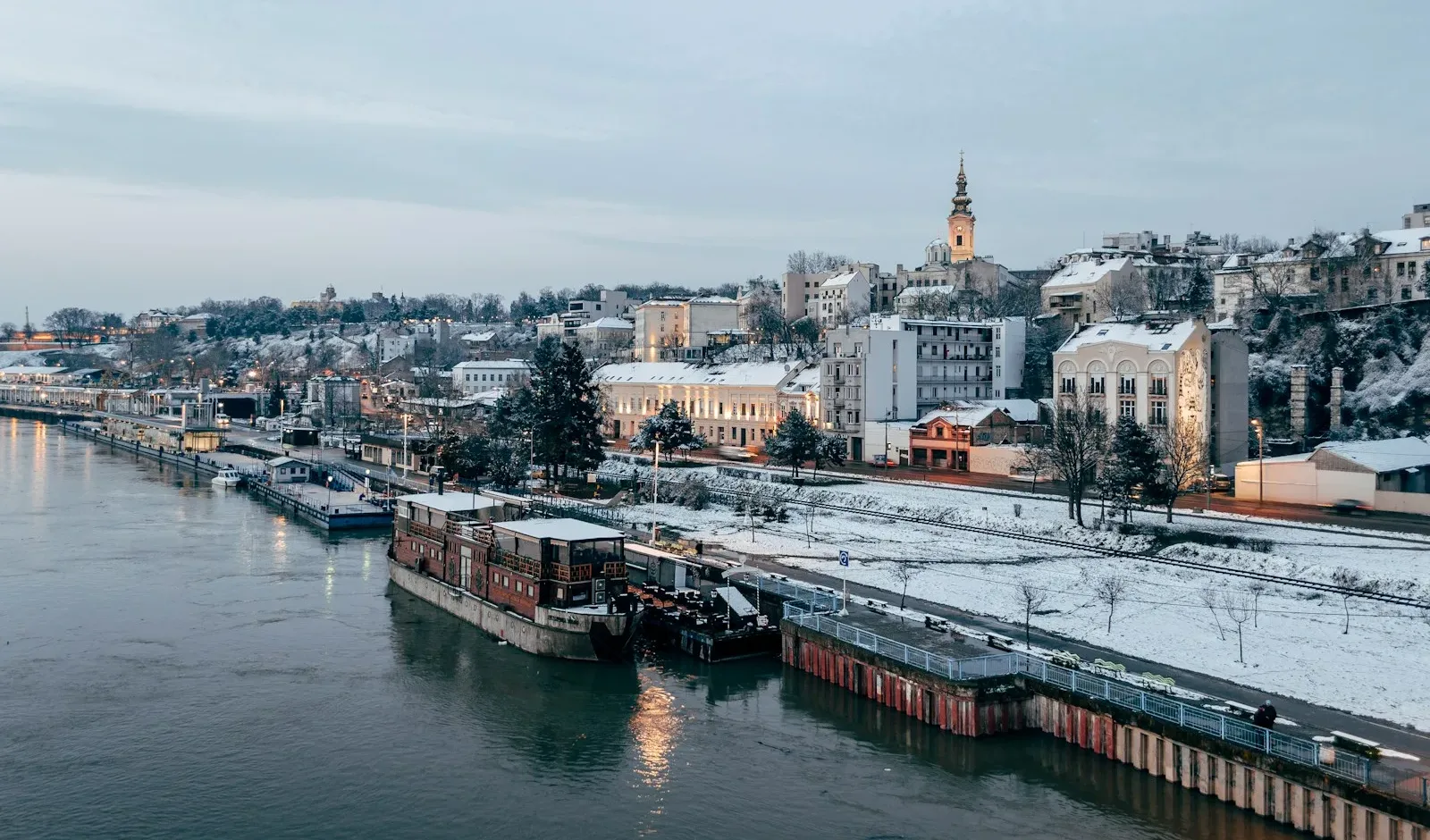Germany Travel Guide: Culture, Castles & Cutting-Edge CoolIntro to Germany Travel Guide
From medieval castles and Alpine lakes to buzzing cities and fairy-tale forests, Germany offers a journey through time and terrain. This central European powerhouse is a land of contrast — where half-timbered towns sit beside tech-forward cities, and Oktoberfest revelry meets serene river cruises. Whether you’re here for world-class museums or forest hikes, Germany is a cultural and natural feast.
Start planning your journey with our complete Germany Travel Guide — featuring the best time to visit, travel costs, places to visit in Germany, and unforgettable Germany tours tailored to your style.
Looking for immersive Germany tours? Explore castle-lined rivers, Bavarian villages, historic cities, and culinary experiences with local guides on our Germany Tours page.
Where to Go in Germany
Aachen | Berlin | Bonn | Bremen | Cologne | Dresden | Düsseldorf | Frankfurt | Hamburg | Hanover | Heidelberg | Leipzig | Munich | Nuremberg | Potsdam | Stuttgart | Wiesbaden | Würzburg
💡Quick Facts:
Destination: Germany
Continent: Europe
Country: Federal Republic of Germany
Area: 357,588 km²
Population: ~84 million
Density: ~235/km²
Capital: Berlin
Regions/Subregions: Bavaria, Saxony, Brandenburg, North Rhine-Westphalia, Baden-Württemberg, Hesse, Rhineland-Palatinate, Saarland, Schleswig-Holstein, Lower Saxony, Thuringia, Saxony-Anhalt, Mecklenburg-Vorpommern, Bremen, Hamburg, Berlin.
Official Language: German (regional: Sorbian, Frisian, Danish, Low German)
Currency: Euro (EUR)
Time Zones: CET (UTC+1), CEST (UTC+2 daylight savings)
Airports: Frankfurt (FRA), Munich (MUC), Berlin Brandenburg (BER), Düsseldorf (DUS), Hamburg (HAM), Stuttgart (STR), Cologne-Bonn (CGN).
Climate: Temperate seasonal – warm summers, cold winters, wetter in the west, drier in the east.
Known For: Berlin Wall, Oktoberfest, Neuschwanstein Castle, Black Forest, Rhine Valley, UNESCO old towns (Bamberg, Lübeck, Regensburg, Quedlinburg).
🛂Arrival Info:
Visa: Schengen Zone member. EU/EEA/Swiss nationals – no visa. Many countries (US, Canada, UK, Australia, Japan, etc.) – 90 days visa-free. Others – Schengen visa required.
Stay Limit: 90 days within 180-day Schengen period.
ETA/Portal: German Federal Foreign Office Visa Info.
🏥Health Info:
Vaccines: Routine (MMR, DTP), Hepatitis A recommended; Hepatitis B and tick-borne encephalitis for long-term rural stays.
Hospitals: High-quality nationwide; English widely spoken in major facilities.
Risks: Tick-borne encephalitis in forests, seasonal flu in winter.
Insurance: EU citizens can use EHIC/GHIC; others strongly advised to carry travel insurance.
🚑 Check travel insurance options for travel emergencies, delays, and medical needs abroad — Get coverage here
💉 Stay Informed with Official Updates: WHO – International Travel & Health | CDC – Travel health updates
🚨Travel Advisory:
Safety Level: Germany is generally safe. Standard EU urban crime risks: pickpocketing in major cities.
Alerts: Monitor official advisories for protests, especially in Berlin and Leipzig.
Civil Rights: LGBTQ+ protections are strong; same-sex marriage legal.
Natural Hazards: Winter storms, occasional river flooding (Rhine, Elbe).
🌍Track Real-Time Official Updates: US Travel Advisory | UK Foreign Travel Advice | Government of Canada | NZ SafeTravel
🥳Holidays:
New Year’s Day: Jan 1 – closures nationwide.
Good Friday & Easter Monday: Dates vary – limited transport.
Labour Day: May 1 – demonstrations common.
German Unity Day: Oct 3 – national holiday.
Christmas Eve/Day: Dec 24–25 – major closures, Christmas markets.
Boxing Day: Dec 26 – closures continue.
💰Visitor Info:
Currency Use: Cards widely accepted; cash still common in smaller towns.
Tipping: Rounding up (5–10%) customary in restaurants/cafés.
Tourist Tax: Applied in many cities (e.g., Berlin, Cologne) per night.
Budget Range: €70–120/day (budget), €150–250 (mid-range), €300+ (luxury).
🛫Airports:
Frankfurt (FRA): Germany’s busiest and a global hub
Munich (MUC): Renowned for design and efficiency
Berlin (BER): Capital gateway
Others: Düsseldorf (DUS), Hamburg (HAM), Stuttgart (STR), Cologne-Bonn (CGN)
Transport: Rail links from all major airports; regional buses serve budget hubs.
🧳 Delayed or canceled flight? Check if you’re eligible for compensation
🚍Transport:
Urban: U-Bahn, S-Bahn, trams, buses; reliable and punctual.
Intercity: Deutsche Bahn high-speed ICE trains link all regions.
Driving: Right-hand side; Autobahn network extensive, some sections no speed limit. IDP recommended for non-EU licenses.
Car Rentals: Available nationwide.
Passes: German Rail Pass, Länder tickets for regional travel.
Notes: Taxis metered; Uber available in larger cities.
🚗 Book reliable airport transfers and in-city rides in advance. Reserve your ride here
🛰️Connectivity:
SIM/eSIM: Telekom, Vodafone, O2 – strong nationwide coverage.
Wi-Fi: Free in many cafés, airports, and city centers.
Roaming: EU citizens use domestic plans across EU. Non-EU visitors should buy local SIM/eSIM.
🛜 Stay connected abroad with affordable eSIM data packs. Get your eSIM here
📜Laws & Etiquette:
Drinking Age: 16 for beer/wine, 18 for spirits.
Smoking: Restricted indoors; designated outdoor areas.
Dress: Casual but tidy; modest attire in churches.
Greetings: Handshake common; punctuality expected.
LGBTQ+: Safe and widely accepted.
Photography: Restricted at military bases and in some museums.
👮Emergency Info:
Emergency Numbers: 112 (fire/ambulance), 110 (police).
Tourist Police: Available in Berlin and Munich.
Embassies/Consulates: Major foreign embassies in Berlin; consulates in Frankfurt, Hamburg, Munich.
🏛️ Use embassy locator tools: Embassies Worldwide
🌞Weather:
Spring (Mar–May): Mild, 10–18°C, blooming landscapes.
Summer (Jun–Aug): Warm, 20–30°C, busiest tourist season.
Autumn (Sep–Nov): Cool, 10–15°C, colorful foliage, wine festivals.
Winter (Dec–Feb): Cold, often below 0°C, Christmas markets, skiing in Alps/Harz.
Risks: Occasional heatwaves in summer; snow/ice hazards in winter.
🌦️ Stay prepared—check the weather forecast for your destination — Weather Forecast
Germany by Region – Where to Go
Germany’s 16 federal states offer remarkable diversity — here’s how to navigate the country region by region.
Bavaria (Bayern) – Castles, Alps & Tradition
- Home to Munich, Neuschwanstein Castle, and Oktoberfest, Bavaria is Germany at its most iconic. Visit alpine villages like Garmisch-Partenkirchen, explore lakes like Königssee, and hike the Bavarian Alps.
Berlin & Brandenburg – Creative Core & Historical Depth
- Berlin is a city of reinvention — full of cutting-edge art, nightlife, and Cold War relics. Surrounding Brandenburg offers palaces like Sanssouci and peaceful lakes.
Baden-Württemberg – Forests, Spas & Car Culture
- From the Black Forest to Heidelberg and the Mercedes-Benz Museum in Stuttgart, this region blends nature and innovation. Don’t miss thermal spa towns like Baden-Baden.
North Rhine–Westphalia – Urban Pulse & Gothic Grandeur
- Germany’s most populous state includes Cologne, with its towering cathedral, Düsseldorf, and Bonn. Discover art museums, riverside strolls, and Rhine river cruises.
Saxony & Saxony-Anhalt – Baroque Cities & Mountain Parks
- Explore Dresden and Leipzig for culture and music, then head to Saxon Switzerland for surreal rock formations and hikes.
Hesse & Central Germany – Financial Hubs & Fairy Tales
- Frankfurt is Germany’s business capital, while nearby Wiesbaden and Kassel tap into literary roots and spa traditions. Visit the Brothers Grimm Route for storybook stops.
Northern Germany – Baltic Breezes & Hanseatic Charm
- Hamburg, Lübeck, and Rostock reflect maritime heritage and Nordic vibes. Enjoy harbor tours, sandy beaches, and UNESCO old towns.
Rhineland-Palatinate & Saarland – Vineyards & River Castles
- Cruise the Moselle and Rhine rivers past medieval castles and terraced vineyards. Stay in wine villages like Cochem or Bacharach.
Top Places to Visit in Germany
Iconic Cities
- Berlin: Wall history, museums, and creative energy
- Munich: Beer gardens, royal palaces, and Bavarian warmth
- Hamburg: Port city with canals, nightlife, and maritime museums
- Cologne: Gothic cathedral, Roman ruins, and riverfront cafés
Nature Escapes
- Black Forest: Scenic drives, cuckoo clocks, and spa villages
- Saxon Switzerland National Park: Sandstone cliffs and forested trails
- Bavarian Alps: Hike, ski, or ride gondolas to jaw-dropping peaks
Castles & History
- Neuschwanstein Castle: Disney inspiration and Alpine views
- Heidelberg Castle: Romantic ruins overlooking the Neckar
- Wartburg Castle: Martin Luther’s refuge and Reformation history
Unique Experiences
- Romantic Road: Road trip through medieval towns and walled cities
- Moselle Valley: Wine tastings and riverside biking
- Dachau Memorial: Sobering but vital WWII remembrance
How to Choose Where to Go in Germany
- If you’re into history and culture, base in Berlin or Dresden.
- For scenic drives and castles, go south to Bavaria or the Romantic Road.
- Nature lovers will adore the Black Forest, Rhine Valley, or Saxon Switzerland.
- City seekers should split time between Munich, Hamburg, and Cologne.
- Wine fans and slow travelers should head to the Moselle and Pfalz regions.
Plan by theme or pair:
- Berlin + Dresden (history + baroque beauty)
- Munich + Alps (city + mountain combo)
- Frankfurt + Rhine River (modern hub + scenic towns)
How to Get Around Germany
Germany has one of the world’s best transport systems:
- Deutsche Bahn (DB) Trains: High-speed ICE and regional trains link all major cities and towns
- Regional Passes: Länder-Tickets and Germany Rail Pass offer value
- Public Transit: U-Bahn, trams, and buses are punctual and efficient
- Car Rental: Great for scenic drives in Bavaria, Rhine, and Black Forest
- Biking: Excellent paths in cities and countryside
- Domestic Flights: Not needed unless visiting remote northern or southern corners
Apps like DB Navigator and BVG help with schedules and ticketing.
Travel Budget & Costs in Germany
The cost to travel in Germany is moderate and great value for Europe:
- Budget travelers: €50–€80/day (hostels, public transit, street food)
- Mid-range: €100–€180/day (hotels, trains, tours)
- Luxury: €200–€400+/day (boutique hotels, private guides, fine dining)
Sample prices:
- Museum entry: €8–€15
- Döner kebab or currywurst: €5–€8
- Hotel room: €90–€150
- Train ride (Berlin–Munich): €40–€90
- Beer (0.5L): €3–€5
Best Time to Visit Germany
Best time to visit Germany: May–October
- Spring (April–May): Cherry blossoms, mild weather, and fewer crowds
- Summer (June–August): Festivals, beer gardens, alpine hikes
- Autumn (September–October): Oktoberfest, vineyard harvests, golden forests
- Winter (December): Christmas markets and cozy old towns
Events:
- Oktoberfest (late Sept–early Oct): Munich’s legendary beer festival
- Karneval (Feb): Cologne’s raucous parades and costumes
- Christmas Markets (late Nov–Dec): Magical stalls across the country
Must-See Experiences in Germany
- Walk the Berlin Wall Trail and visit Checkpoint Charlie
- Climb Cologne Cathedral’s tower for panoramic river views
- Sip Riesling wine in a Moselle Valley vineyard
- Hike through the Black Forest to waterfalls and alpine lakes
- Cruise the Rhine River past cliff-top castles and medieval towns
- Cycle through Munich’s English Garden and grab a beer at the Chinese Tower
- Take the Romantic Road from Würzburg to Füssen
- Explore Bamberg’s historic old town and smoked beer taverns
Book immersive Germany tours and experience unforgettable things to do in Germany — from sacred temple rituals and highland treks to floating markets and lakeside food adventures.
Best Travel Itineraries in Germany
7-Day Highlights Route
Day 1–2: Berlin – wall history and nightlife
Day 3: Dresden – art, palaces, and old town
Day 4–5: Munich – beer halls, museums, and gardens
Day 6: Neuschwanstein Castle – day trip or overnight in Füssen
Day 7: Fly out from Munich or return via high-speed train
10-Day Scenic Germany Itinerary
Add: Rhine Valley (Bacharach, Koblenz), Heidelberg, and Black Forest drive
Optional: Day trip to Strasbourg (France) or Salzburg (Austria)
Local Cuisine & Culinary Experiences
Germany’s regional food scene is rich and hearty:
- Sauerbraten (Rheinland): Marinated roast beef
- Weißwurst (Bavaria): Veal sausage with sweet mustard
- Spätzle (Swabia): Soft egg noodles, often cheesy (Käsespätzle)
- Currywurst (Berlin): Grilled sausage with spiced ketchup
- Schweinshaxe (Bavaria): Roasted pork knuckle
- Pretzels, rye breads, apple strudel, and seasonal cakes
- Beer & Wine: Sample regional brews, Rieslings, and Franconian wines
Take a food tour in Berlin or Munich, or visit local beer gardens and farmers’ markets for authentic bites.
Travel Safety & Cultural Etiquette in Germany
- Safety: Very safe; use normal urban precautions
- Healthcare: Excellent; EU coverage applies; travel insurance recommended
- Etiquette: Be punctual, use titles (Herr/Frau), and avoid jaywalking
- Language: German is official, but English is widely spoken in cities
- Cash vs Card: Germany still favors cash in many small shops and bakeries
- Tipping: Round up to the nearest euro or tip ~5–10% in restaurants
Where to Go Next – Pair Germany with These Destinations
- Austria: Short train to Vienna or Salzburg — culture and Alps
- Switzerland: Combine Bavarian Alps with Swiss peaks and lakes
- Poland: Easy access from Berlin to Kraków or Gdańsk
- France: Hop west to Strasbourg, Paris, or Alsace wine routes
Explore more:
- Austria Travel Guide – Mozart, mountain trails, and café culture
- Switzerland Travel Guide – Lakes, chocolate, and scenic rail
- Poland Travel Guide – History, castles, and old town charm
- France Travel Guide – Art, wine, and timeless elegance
Final Planning Checklist for Germany
- Map out regions and book intercity trains or passes early
- Reserve Oktoberfest tables or Christmas market stays well in advance
- Download DB Navigator and local transport apps
- Pack for layers — Germany’s weather can shift quickly
- Bring Euros and small change for local bakeries and WC fees
- Check museum closures on Mondays and plan city sightseeing accordingly
- Learn a few German phrases for greetings and thanks
- Always validate train/bus tickets when required to avoid fines
Explore Germany with confidence using our trusted tips, local insights, and region-by-region planning tools.






